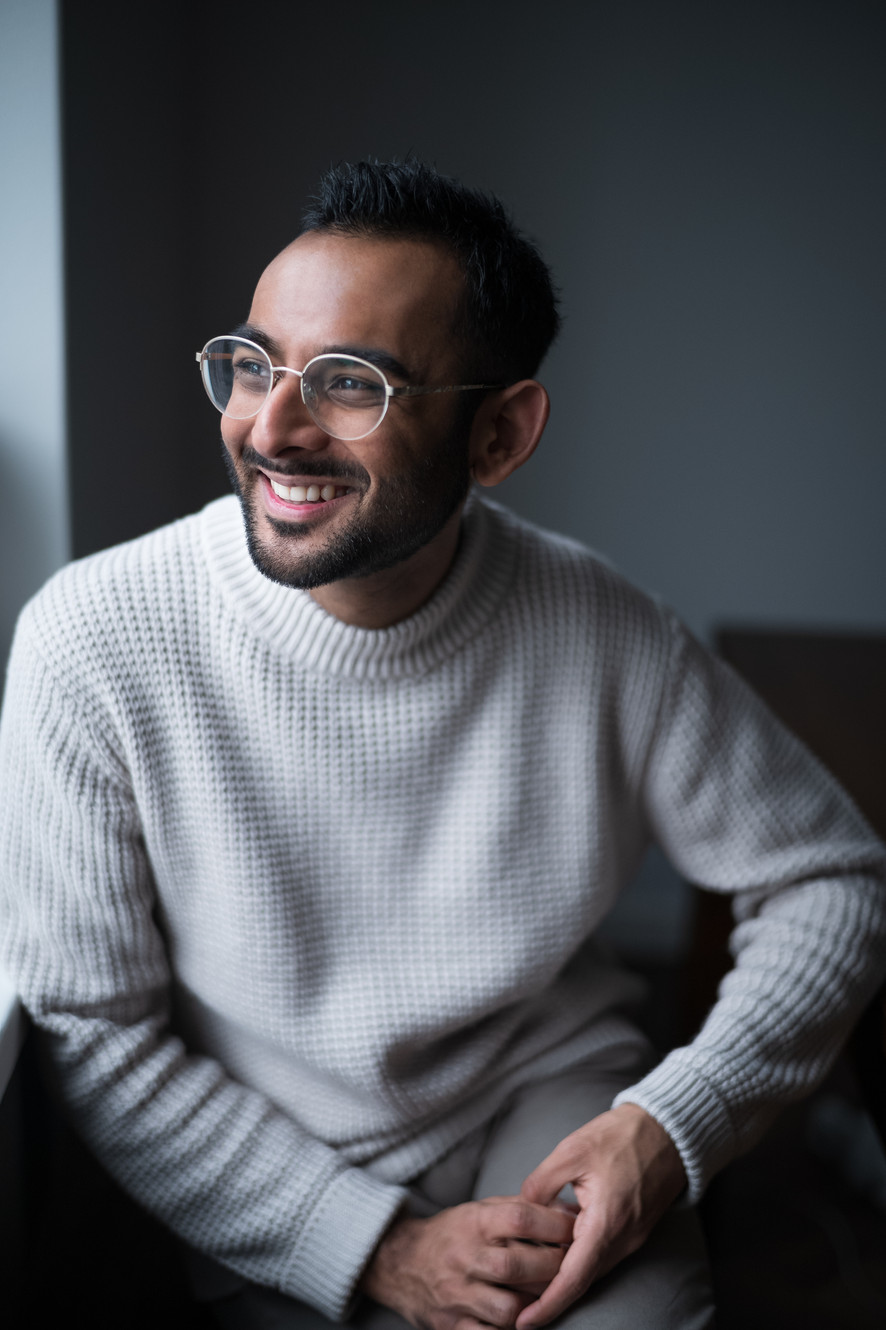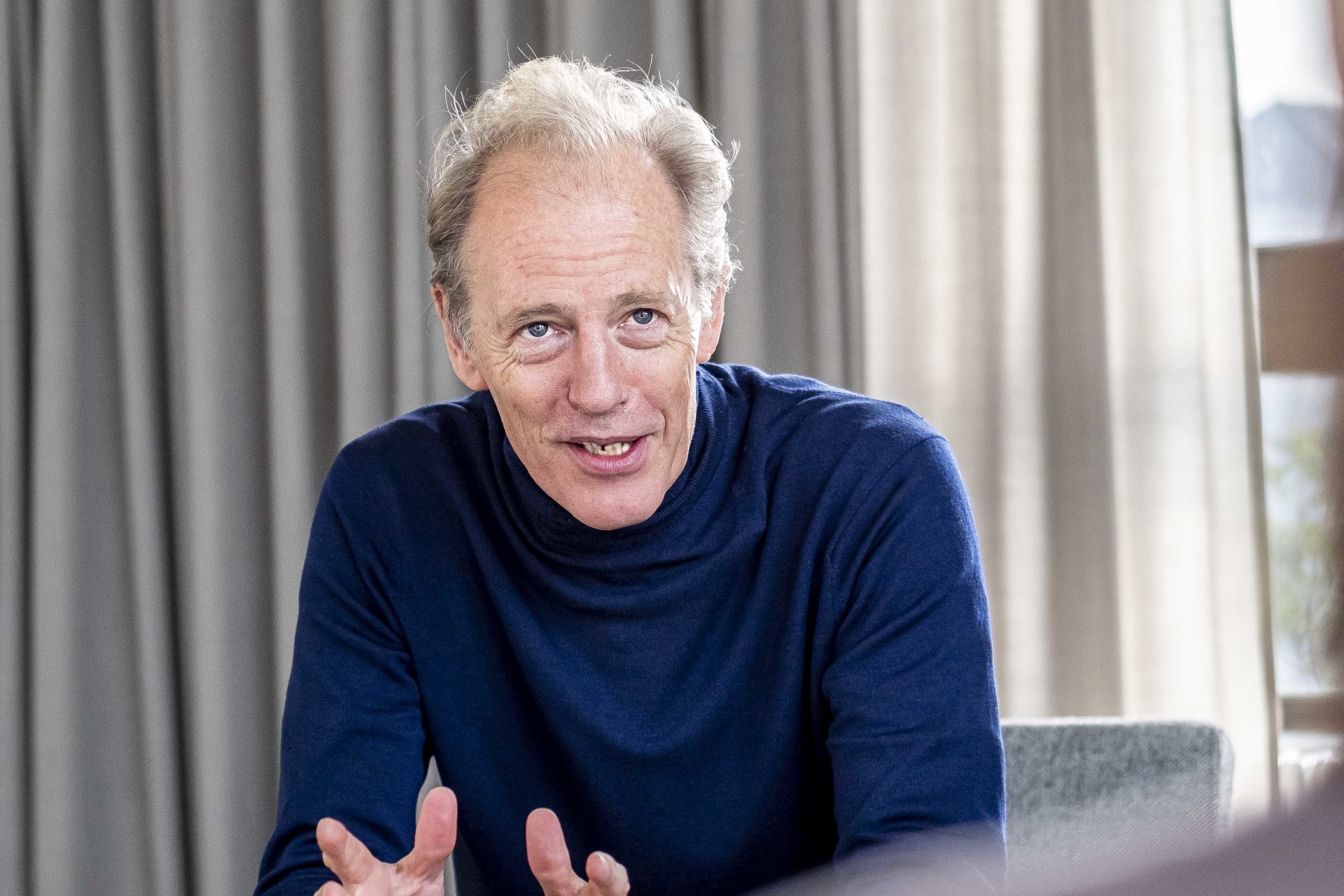This month sees the return of the Oxford International Song Festival, previously known as the Oxford Lieder. Taking place between 11-26 October, this year’s theme is Cities of Song; exploring composers in the cities which inspired them. The programme features regular highlights including the much-loved Schubert weekend as well as ‘rush-hour’, lunchtime and late-night concerts. There is also a world premiere taking place: Eternity in an Hour, an interpretation of Sanskrit Verses from the Bhagavad Gita performed by Keval Shah and Jess Dandy. With original compositions by composer Reena Esmail woven between classics from the canon of Lied repertoire, this melding together of words and music, East and West, promises a ‘unique reimagining’ of this revered scripture.
Highly acclaimed pianist Keval Shah is also a regular presenter for BBC radio and lectures at the Sibelius Academy in Helsinki where he runs the Lied programme. He was an Oxford Lieder Young Artist, a Britten-Pears Young Artist, and a scholarship holder of the Imogen Cooper Music Trust. In person, he is as handsome as a boy-band member, as articulate as a scholar, and as comfortable to talk with as an old friend.

Holywell Music Room
Setting such a significant text to music is no mean feat, and I was eager to learn how the project came about. “Jess Dandy wrote to me to ask if I would ever have any interest in exploring my Indian upbringing and culture on a classical stage”, he explains. “It came at a good time because I wanted to bring together the two main cultural influences of my life: Western classical music (the discipline I've trained in and in which I work) and the culture of Northwest India and Gujarat state, where my parents are from.
I grew up surrounded by Gujarati culture, and when you work as a Western classical musician you quite quickly realise there aren't many people like you in this field. I hadn't noticed until I started therapy that in an attempt to fit in and make myself feel like I belonged in that world, I was starting to suppress and reject aspects of my Indianness. So, at the heart of the project is this desire for me to bring together the different strands of my identity and to find a way of reflecting my complete self as an artist.”
How familiar were you with the Bhagavad Gita?
“It is a text I grew up with. There was a piece of paper on my grandmother's fridge called the Gist of Gita, and it was like a slightly cheesy English language poem. Then about a decade ago, my parents were going through a period of reassessing the chains of religion and ritual. They went to Vedantic classes to explore Vedantic philosophy, doing guided readings of the Gita as a piece of literature completely independent of any kind of religious gaze.

I tend to speak to my dad and my mum about whatever I'm feeling, and the advice and the guidance that they give me are so much grounded in the Gita’s philosophy. Particularly the sense that investing time, energy or effort dwelling on something which is completely not present is just taking you out of the one thing you do have control of: the right now. I don't in any way call myself any kind of scholar of the text, but it is something which I feel I can come back to again and again and find wisdom.
In this concert, we are pairing new songs by the Indian American composer, Reena Esmail, with some really canonic songs from the Western classical repertoire – by Mahler, Schubert, Wolf – and it's a demonstration of the ways in which Western and Eastern cultures and perspectives can coexist. Yes, there are elements of tension but also a lot of confluence. The Gita doesn't really have borders; as a text it is a manifestation of borderlessness, right? Maybe that’s a fancy way of saying it has some kind of universal quality. People like Goethe and Oppenheimer read it and got something from it: I think there's a universality which is intrinsic to the text.”
The Bhagavad Gita (‘the divine song’ or ‘the word of God’) is the most prominent sacred text in Hinduism. Believed to date back to the second half of the first millennium BCE, it is set in a narrative framework between Prince Arjuna and his ‘guide’ Krishna, an avatar of the Hindu god, Vishnu. There are 700 verses in total which seems a lot to fit into an hour, but Keval clarifies, “Every single verse is significant, and every verse responds to earlier verses, but we can't possibly set the whole thing because it would take way too long.”
Contralto Jess Dandy is an alumna and Fellow at the Guildhall School of Music and Drama. A co-founder of SongPath, a mental health initiative creating musical walking trails in nature, she has been described in The Times as ‘a name to watch’. “Jess has such a great literary sense. She started to move the verses we'd chosen into thematic groups. In the concert, there will be some text that is simply spoken in Sanskrit – with me kind of playing underneath – and bits of the Sanskrit that are fully set in a kind of a lyric Western style and then bits that will be chanted in the metrical rhythms of the original. It's a real tapestry of sound worlds and kind of different types of engagement with the literature. Hopefully, our audience will be inspired and see that the relationship between the Eastern mode of thinking and the Western is actually quite connected and similar…and then see the places where they diverge. This concert is going to put these different philosophies side by side and demonstrate how they engage with each other. A kind of cross-cultural dialogue in music.”
Reena Esmail holds degrees in composition from The Juilliard School in New York and the Yale School of Music. Her doctoral theses explored methods and challenges of the collaborative process between Hindustani musicians and Western composers, and she is currently the Los Angeles Master Chorale’s 2020-2025 Swan Family Artist in Residence.

“She has this great ability, especially harmonically; she really opens up the text for a listener through the way she writes the music. It's a challenge because there's a language barrier that has to be transcended. But we felt it was very important that we set this in the Sanskrit original and not in an English translation; we wanted it to be inside an Indian sound world. Reena's musical language is a hybrid combination of Western tonality and Indian North Indian raga. So, especially in the vocal parts, there's lots of pitch bending and singing in between intervals in a way that is not so typical for Western classical writing.
I approached Reena because she was trained both in a Western classical and a North Indian classical style. She has created a third musical language, which takes elements of both. It’s a completely interstitial piece: none of her songs have endings or beginnings. We've given her the list of the German, French and English songs, and we've given her the order of everything. All of her songs are improvised in and out of the Western songs – there's no gap between anything. We've dissolved all of the barriers.”
Perhaps, though, there is a barrier which remains: classical music is so often seen as the province of the elite. “It’s an important conversation to be having. I am very, very clear in my mind that elitism in classical music is so much more than about ticket prices, which are relatively low. It’s definitely cheaper to come to a concert like this than it is to go and see Oasis. But that's not what elitism is. We must accept that, for better or worse, classical music in the 20th century had such a particular kind of image, such a set of rituals around it – particularly when it came to institutionalised classical music. The point to make is that classical music becomes dominated by the culture of the institution. What is great about The Oxford International Song Festival is that the music is all around the city. It's in venues that people go to anyway, we share the music in spaces where people want to be. There's nothing elitist about the music. The music is the music.
There are so many different kinds of concerts, and so much happening in this two-week period; you've got the opportunity to try something new in a relatively safe environment. So I hope that people will come to this concert because they perhaps know of Jess, they know of me, or because they know of the Gita and they're curious about how that might be relevant to the world of Lieder.
Oxford is a city full of curious people and so it's a good place to present something like this. The Oxford International Song Festival is one of the most significant festivals for Western classical song repertoire. I've been playing here every year for the last five years and I won the Young Artist competition when I was doing my studies. The Festival has really supported me, and it feels meaningful that it's with their support that this project is happening.”
For more information on the Oxford International Song Festival visit oxfordsong.org.






